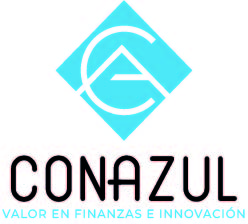The countless studies of success factors in cities, regions, and countries that have achieved high levels of social and economic impact through innovative practices show that there is one element that has never been missing and has proven to be indispensable for entrepreneurship and innovation ecosystems to function. This element is trust.
There is a theory used by innovation experts, which in my opinion is mistaken, that posits that if ingredients such as business accelerators, business plan competitions, co-working spaces, angel investors, university-based applied research centers, and companies acquiring technology developments from universities and startups, among others, are placed in a pot and cooked, the resulting dish will be a successful entrepreneurship and innovation ecosystem. Nothing could be further from the truth than this simplified input-output model, as it lacks the most important element without which nothing works: trust. As long as there is no trust between
entrepreneurs and investors, or between companies and universities, for example, high-quality and sustainable relationships with impact cannot be established.
Spending a week in Silicon Valley, Estonia, or Cambridge attending events and talking to entrepreneurs, investors, academics, or policymakers is enough to realize that there is no mistrust that limits exchange, thus enabling the establishment of solid and sustainable relationships that underpin and build a robust ecosystem.
The same applies to crisis management. A country where there is no trust in the government or in entrepreneurs, or among citizens themselves, has no way of dealing with a national crisis in an orderly fashion. This is evident when we compare ourselves with countries where health systems have never been under pressure, and the economy has functioned relatively well, even with cases and deaths. In a term popularized during the pandemic, we can say that in countries where there is trust, we can “dance” appropriately with Covid-19.
The concept also applies to political life in general. An immature society, where mutual mistrust between groups or individuals still persists, where most people unethically cut corners or think that someone else will take advantage by unethically cut corners, has no way of articulating itself properly.
Trust is achieved by working one-on-one on the quality of relationships between individuals and organizations and gradually making these relationships effective, which in turn generates trust for other relationships to be established. It is indicated that in this way, it takes more than one generation to see effects in a society so that innovation and entrepreneurship work for the creation of wealth and human well-being. Undoubtedly, for the functioning of a country in general, with its people and its institutions, the work takes more time. But it must be done. We must take charge. There is no other way than trust.





